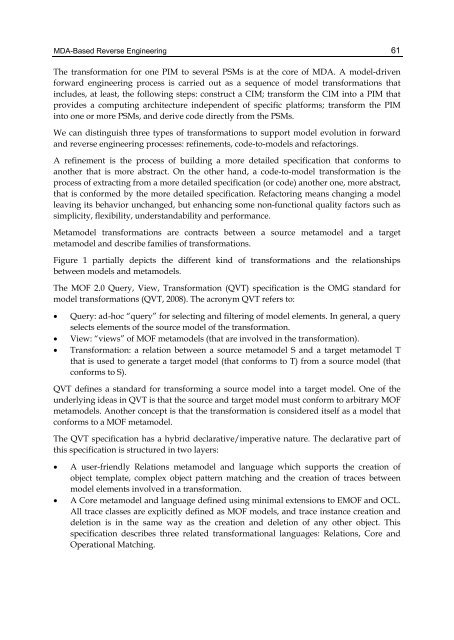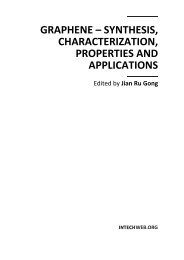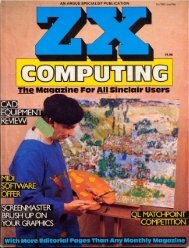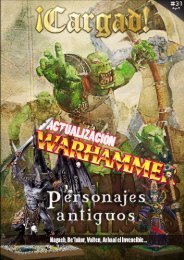reverse engineering – recent advances and applications - OpenLibra
reverse engineering – recent advances and applications - OpenLibra
reverse engineering – recent advances and applications - OpenLibra
You also want an ePaper? Increase the reach of your titles
YUMPU automatically turns print PDFs into web optimized ePapers that Google loves.
MDA-Based Reverse Engineering<br />
The transformation for one PIM to several PSMs is at the core of MDA. A model-driven<br />
forward <strong>engineering</strong> process is carried out as a sequence of model transformations that<br />
includes, at least, the following steps: construct a CIM; transform the CIM into a PIM that<br />
provides a computing architecture independent of specific platforms; transform the PIM<br />
into one or more PSMs, <strong>and</strong> derive code directly from the PSMs.<br />
We can distinguish three types of transformations to support model evolution in forward<br />
<strong>and</strong> <strong>reverse</strong> <strong>engineering</strong> processes: refinements, code-to-models <strong>and</strong> refactorings.<br />
A refinement is the process of building a more detailed specification that conforms to<br />
another that is more abstract. On the other h<strong>and</strong>, a code-to-model transformation is the<br />
process of extracting from a more detailed specification (or code) another one, more abstract,<br />
that is conformed by the more detailed specification. Refactoring means changing a model<br />
leaving its behavior unchanged, but enhancing some non-functional quality factors such as<br />
simplicity, flexibility, underst<strong>and</strong>ability <strong>and</strong> performance.<br />
Metamodel transformations are contracts between a source metamodel <strong>and</strong> a target<br />
metamodel <strong>and</strong> describe families of transformations.<br />
Figure 1 partially depicts the different kind of transformations <strong>and</strong> the relationships<br />
between models <strong>and</strong> metamodels.<br />
The MOF 2.0 Query, View, Transformation (QVT) specification is the OMG st<strong>and</strong>ard for<br />
model transformations (QVT, 2008). The acronym QVT refers to:<br />
� Query: ad-hoc “query” for selecting <strong>and</strong> filtering of model elements. In general, a query<br />
selects elements of the source model of the transformation.<br />
� View: “views” of MOF metamodels (that are involved in the transformation).<br />
� Transformation: a relation between a source metamodel S <strong>and</strong> a target metamodel T<br />
that is used to generate a target model (that conforms to T) from a source model (that<br />
conforms to S).<br />
QVT defines a st<strong>and</strong>ard for transforming a source model into a target model. One of the<br />
underlying ideas in QVT is that the source <strong>and</strong> target model must conform to arbitrary MOF<br />
metamodels. Another concept is that the transformation is considered itself as a model that<br />
conforms to a MOF metamodel.<br />
The QVT specification has a hybrid declarative/imperative nature. The declarative part of<br />
this specification is structured in two layers:<br />
� A user-friendly Relations metamodel <strong>and</strong> language which supports the creation of<br />
object template, complex object pattern matching <strong>and</strong> the creation of traces between<br />
model elements involved in a transformation.<br />
� A Core metamodel <strong>and</strong> language defined using minimal extensions to EMOF <strong>and</strong> OCL.<br />
All trace classes are explicitly defined as MOF models, <strong>and</strong> trace instance creation <strong>and</strong><br />
deletion is in the same way as the creation <strong>and</strong> deletion of any other object. This<br />
specification describes three related transformational languages: Relations, Core <strong>and</strong><br />
Operational Matching.<br />
61
















